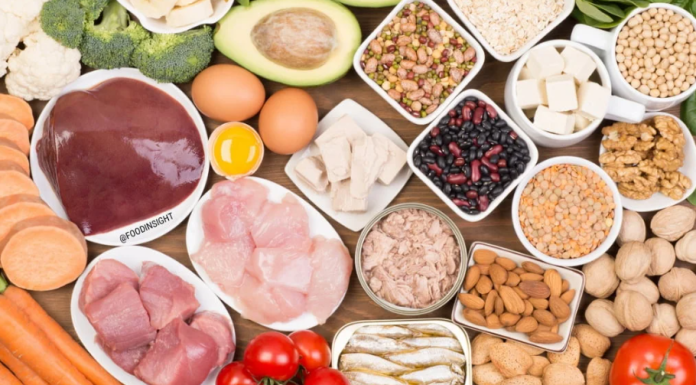Why vitamin H (biotin) is good for you
Biotin is referred to as Vitamin H and is part of the Vitamin B complex group. It is a co-factor vitamin which works synergistically with the rest of the B vitamins.
Vitamin H (biotin) is used to assist cell growth, in the production of essential fatty acids, as well as in the metabolism of fats and proteins. It plays a role in the Kreb cycle, which is the process in which energy is released from food. Vitamin H (biotin) not only assists in various metabolic chemical conversions, but also helps with the transfer of carbon dioxide. Vitamin H (biotin) is also helpful in maintaining a steady blood glucose level.
Vitamin H (Biotin) is associated with healthy hair, skin, sweat glands, nerve tissue and bone marrow and assisting in muscle pain.
Important vitamin H (biotin) facts
- Vitamin H (biotin) is not easily destroyed
- It seems that vitamin H (biotin) may affect hair color, together with PABA, vitamin B5 (pantothenic acid) and folic acid. Some research have had varying results using vitamin H (biotin) supplements in returning hair to its original color. This has proved only successful to a limited degree and only when natural vitamins were used, as the synthetic vitamins did not influence the results very much
- Vitamin H (biotin) is present in many foods (cheese, beef liver, cauliflower, eggs, mushrooms, chicken breast, salmon, spinach, brewer’s yeast, nuts) and can also be manufactured in the body should a small shortfall occur
Groups at risk of vitamin H (biotin) deficiency
- Bodybuilders and athletes – consuming raw eggs may cause a vitamin H (biotin) shortage, since raw eggs contain avidin, which binds with the vitamin H (biotin), making it impossible for it to be absorbed by the body
- Long term users of antibiotics – may also have to look at their vitamin H (biotin) levels, as they may be depleted through the long term use of antibiotics
Talk to a medical professional about vitamin H (biotin) supplements before taking them
Symptoms of vitamin H (biotin) deficiency
Deficiency of vitamin H (biotin) is very rare, but can happen and symptoms are:
- depression
- dry, scaly skin
- elevation of cholesterol levels
- fatigue
- loss of appetite
- nausea
- tongue inflammation
- vomiting
Vitamin H (biotin) and health
- Hair health – vitamin H (biotin) might be interesting to some people since one of the most visible symptoms of shortage of this vitamin is thinning of hair which can lead to total hair loss. This does not mean that baldness is a sign of vitamin H (biotin) in short supply – severe hair loss might just be indicative of vitamin H (biotin) being deficient
Talk to a medical professional about vitamin H (biotin) supplements before taking them
Vitamin H (biotin) in food
| FOOD | AMOUNT | Vitamin H (mcg) |
|---|---|---|
Brewer’s yeast – dried | 1 packet | 200 |
Chicken liver, fried | 75g | 85 |
Kidney, fried | 100g | 42 |
Egg, raw | 1 medium | 25 |
Skim milk – dried | 12g | 16 |
Cod roe | 100g | 15 |
Wheatbran bread | 1 slice | 14 |
Oysters, raw | 12 | 10 |
Rye crispbread | 1 biscuit | 7 |
Wholemeal bread | 1 slice | 6 |
Camembert cheese | 25g | 6 |
Vitamin H (biotin) recommended daily intake (RDI)
| RDA | lifestage | age | Amount |
|---|---|---|---|
| INFANTS | 0-6mths 7-12mths | 5mcg 6mcg | |
| CHILDREN | 1-3yrs 4-8yrs | 8mcg 12mcg | |
| CHILDREN | 9-13yrs 14-18yrs | 20mcg 25mcg | |
| ADULTS | 19-50yrs | 30mcg | |
| SENIORS | 51+yrs | 30mcg | |
| PREGNANT | 30mg | ||
| LACTATING | 35mg | ||
| TOLERABLE UPPER LIMIT | none established | ||
| TOXIC LEVELS | none established – vitamin H (biotin) is a water soluble vitamin and therefore excess amounts are usually excreted in the urine | ||
The tolerable upper limits should only be taken for short periods and only under medical supervision.
Vitamin H (biotin) works best with
Overdosage, toxicity and cautions for vitamin H (biotin)
No known toxic levels for vitamin H (biotin) are known, as any excessive intake is easily lost in the urine and faeces.
No known side effects from high doses of vitamin H (biotin) supplements are known.
References
- Houchman LG, et al. Brittle nails: response to biotin supplementation. Cutis. 1993;51:303–307
- Maebashi Y et al. Therapeutic evaluation of the effect of biotin on hyperglycemia in patients with non-insulin dependent diabetes mellitus. J Clin Biochem Nutr. 1993 May; 14(3):211-218
- Office of Dietary Supplements USA – has the official USA RDI for all vitamins (these are also adopted by Australia), accessed 9 August 2005
- Osiecki, Henry, The Nutrient Bible 2002, BioConcepts Publishing
- Said HM. Cellular Uptake of Biotin: Mechanisms and Regulation. Journal of Nutrition. 1999;129:490-493
- Said HM, et al. Biotin uptake by human colonic epithelial NCM460 cells: a carrier-mediated process shared with pantothenic acid. Am J Physiol Cell Physiol 275: C1365-C1371, 1998
- Wolf B, Grier RE, Secor McVoy JR, Heard GS. Biotinidase deficiency: A novel vitamin recycling defect. Journal of Inherited Metabolic Disease, 1985. 8 (1); 53-58
- Zempleni J. Biotin biochemistry and human requirements. The Journal of Nutritional Biochemistry 1999, Volume 10, Issue 3, Pages 128-138


